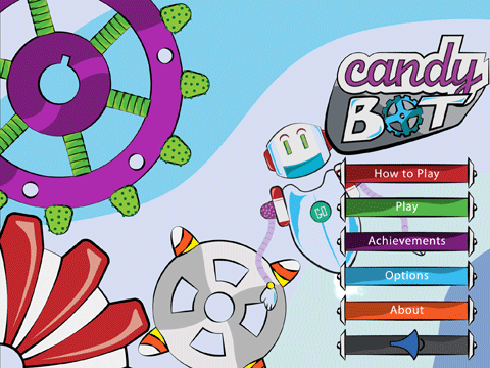CandyBot iPad app quickly exceeds expectations

It didn’t take long for CandyBot, the latest math iPad app created by a research group from Virginia Tech, to start getting noticed.
The app – designed to teach fractions and functions, among other concepts – has been downloaded more than 40,000 times since its April launch.
CandyBot is the fourth in a series of applications developed by the GAMES Project, part of the Learning Transformation Research Group at Virginia Tech that focuses on transforming kindergarten through 12th grade education. The team is comprised of researchers and developers from Virginia Tech’s College of Science, College of Liberal Arts and Human Science and College of Engineering.
The project has been funded by a $2 million grant from the National Science Foundation.
Anderson Norton, associate professor of mathematics and Candybot co-developer, explained how CandyBot is better than the previous apps because it brings together four key elements: engagement, game design, software engineering and math concepts.
“CandyBot is the first time we got it all right,” Norton said. “This is what we wanted the others to be.”
The app’s main focus is on fractions and functions and assists students in understanding how to transfer inputs into desired outputs.
Players begin the game by creating their own robot and getting to work in the candy factory. The first level starts out easy, requiring players to only input whole numbers of candy bars. As players progress through the levels the orders become more difficult, including improper fractions and mixed numbers. Players are able to use their robot to create different functions to accurately complete orders and satisfy their customers.
The game also includes features that become available once certain levels are reached. These features include the ability to bundle and slice the candy bars.
The CandyBot Game is available for all iPads and iPad Minis with iOS version 6.0 or higher.
The main developers for CandyBot were Osman Balci, professor of computer science; Serdar Aslan, a computer science doctoral student; Steven Boyce, a mathematics doctoral student; and Norton. Kirby Deater-Deckard, director of graduate programs in psychology, is also a member of the team; his focus deals directly with how the apps work in a classroom environment with the students.
As a part of the NSF grant, teachers in Danville, Virginia, and Martinsville, Virginia, have been using CandyFactory and CandyDepot apps since 2013 when they were released. CandyBot was just recently introduced to the teachers as well.
One middle school teacher at Shawsville Middle School, in Montgomery County also uses the apps with his students.
The development team would ideally like students to download the games on their own, but have found it extremely helpful to have it introduced to them in the classroom first.
Written by Virginia Tech news intern Katherine WellsDedicated to its motto, Ut Prosim (That I May Serve), Virginia Tech takes a hands-on, engaging approach to education, preparing scholars to be leaders in their fields and communities. As the commonwealth’s most comprehensive university and its leading research institution, Virginia Tech offers 240 undergraduate and graduate degree programs to more than 31,000 students and manages a research portfolio of $513 million. The university fulfills its land-grant mission of transforming knowledge to practice through technological leadership and by fueling economic growth and job creation locally, regionally, and across Virginia.







